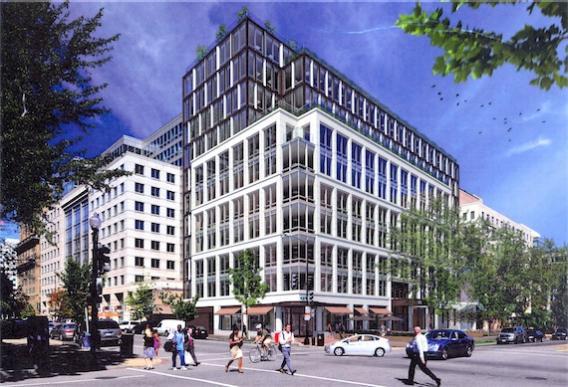What kinds of considerations should be in play when a new building goes up under circumstances that require historic review? That, I think, is the real issue posed by David Alpert’s excellent overview of the controversy over a replacement structure for the Third Church of Christ, Scientist.
The basic position of the Historic Preservation Office is that it’s inappropriate for a building on that stretch of 16th Street to be taller than 90 feet in any way, even though taller structures would be allowed under the Height of Buildings Act. Alpert’s basic rejoinder is that denying the city extra square feet of office space in a very expensive and very development-constrained central business district is a very costly piece of economic policy. We are talking about several floors worth of offices that would have been filled by employed people that now won’t be. Very optimistically, all that same employment will still exist but at remote less environmentally friendly suburban locations that don’t benefit the city economically. More realistically, downtown has some irreplaceable qualities and the aggregate quantity of employment and economic activity around the region will be reduced by this decision.
But what’s especially frustrating about it is that in the official HPO process these considerations don’t get any weight at all.
I don’t, personally, understand the aesthetic principle that it’s always better for new things to look similar to old things. But the real point is that these are key municipal economic policy decisions and deserve to be considered as such. HPO seems to have spun itself a tale in which a tallish office building on this site will put us on a slippery slope to a rooftop bar at the St Regis hotel. But maybe we should let the St Regis Hotel open a rooftop bar? That would be, again, more jobs for bartenders and guys delivering the booze. It would also mean more tax revenue so the city can afford cops and teachers and bus drivers. Maybe all things considered that’s a bad idea. But we really ought to be considering all things. A modern urban economy is built around downtown office buildings, so decisions about how many downtown office buildings can be built are some of the most important economic policy decisions a city makes and yet the fields of expertise required for membership on DC’s Historic Preservation Review Board include almost everything but economics.
